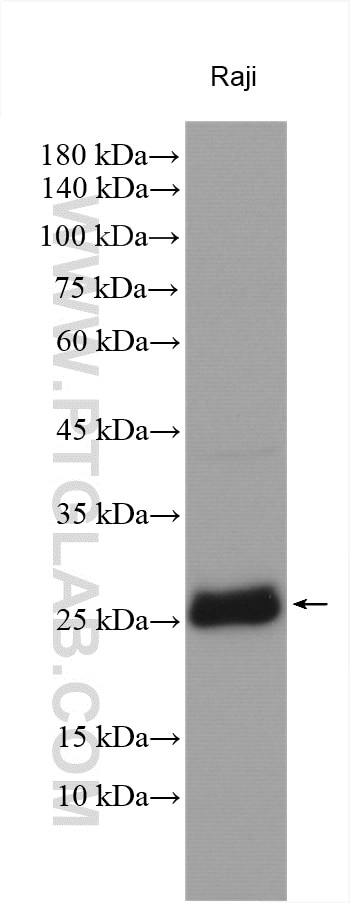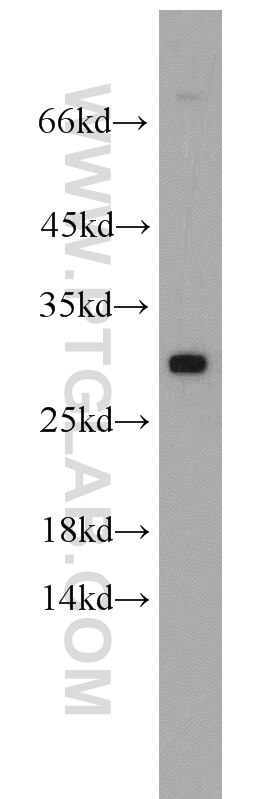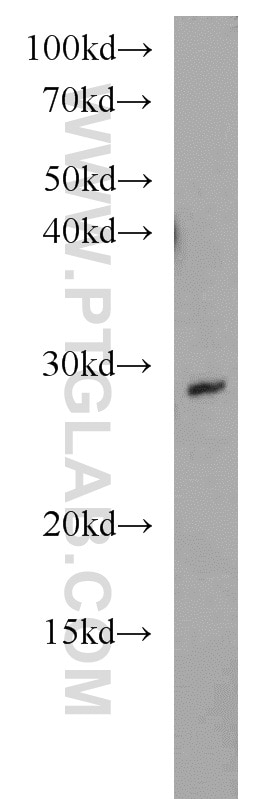Tested Applications
| Positive WB detected in | Raji cells, human placenta tissue, human brain tissue |
Recommended dilution
| Application | Dilution |
|---|---|
| Western Blot (WB) | WB : 1:1000-1:4000 |
| It is recommended that this reagent should be titrated in each testing system to obtain optimal results. | |
| Sample-dependent, Check data in validation data gallery. | |
Product Information
11008-1-AP targets WBS15/LAT2 in WB, ELISA applications and shows reactivity with human, mouse samples.
| Tested Reactivity | human, mouse |
| Host / Isotype | Rabbit / IgG |
| Class | Polyclonal |
| Type | Antibody |
| Immunogen |
CatNo: Ag1454 Product name: Recombinant human LAT2 protein Source: e coli.-derived, PGEX-4T Tag: GST Domain: 1-243 aa of BC009204 Sequence: MSSGTELLWPGAALLVLLGVAASLCVRCSRPGAKRSEKIYQQRSLREDQQSFTGSRTYSLVGQAWPGPLADMAPTRKDKLLQFYPSLEDPASSRYQNFSKGSRHGSEEAYIDPIAMEYYNWGRFSKPPEDDDANSYENVLICKQKTTETGAQQEGIGGLCRGDLSLSLALKTGPTSGLCPSASPEEDEESEDYQNSASIHQWRESRKVMGQLQREASPGPVGSPDEEDGEPDYVNGEVAATEA Predict reactive species |
| Full Name | linker for activation of T cells family, member 2 |
| Calculated Molecular Weight | 27 kDa |
| Observed Molecular Weight | 27-30 kDa |
| GenBank Accession Number | BC009204 |
| Gene Symbol | LAT2 |
| Gene ID (NCBI) | 7462 |
| RRID | AB_2133252 |
| Conjugate | Unconjugated |
| Form | Liquid |
| Purification Method | Antigen affinity purification |
| UNIPROT ID | Q9GZY6 |
| Storage Buffer | PBS with 0.02% sodium azide and 50% glycerol, pH 7.3. |
| Storage Conditions | Store at -20°C. Stable for one year after shipment. Aliquoting is unnecessary for -20oC storage. 20ul sizes contain 0.1% BSA. |
Background Information
WBS15, also named as LAB, NTAL, WBSCR15, WBSCR5and LAT2 (Linker for activation of T-cells family member 2; not SLC7A8/LAT2), is involved in FCER1 (high affinity immunoglobulin epsilon receptor)-mediated signaling in mast and myeloid cells. WBS15 is involved in BCR (B-cell antigen receptor)-mediated signaling in B-cells. It is located in the Williams-Beuren syndrome (WBS) critical region. WBS15 has two isoform with MW 27-30 kDa and 12 kDa.
Protocols
| Product Specific Protocols | |
|---|---|
| WB protocol for WBS15/LAT2 antibody 11008-1-AP | Download protocol |
| Standard Protocols | |
|---|---|
| Click here to view our Standard Protocols |








